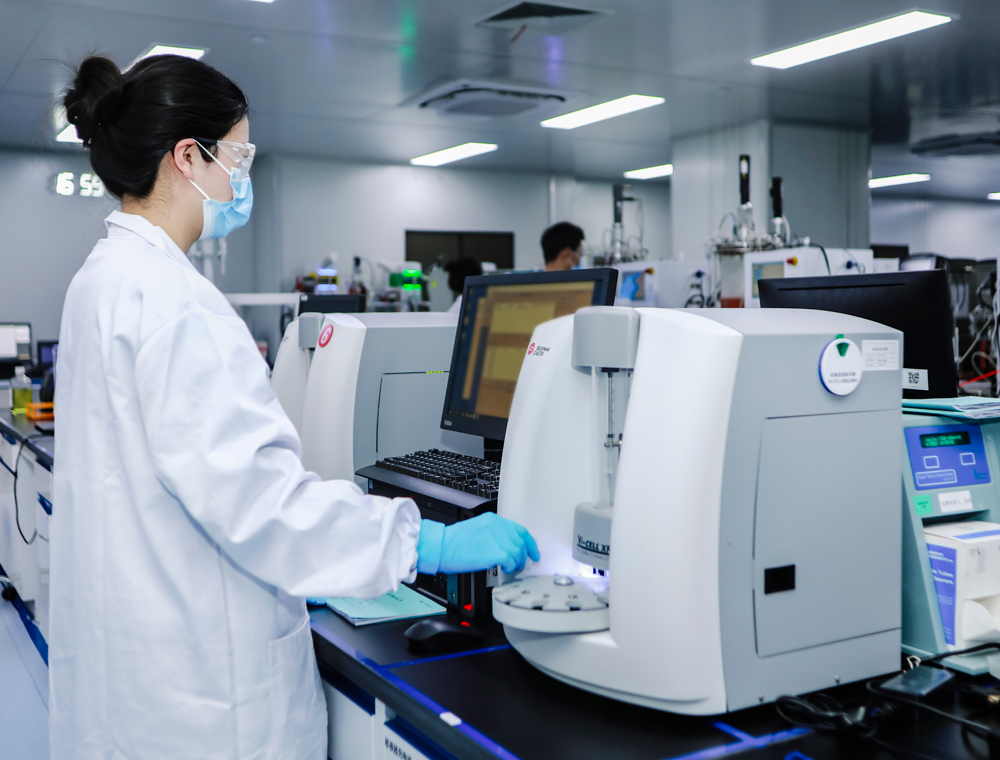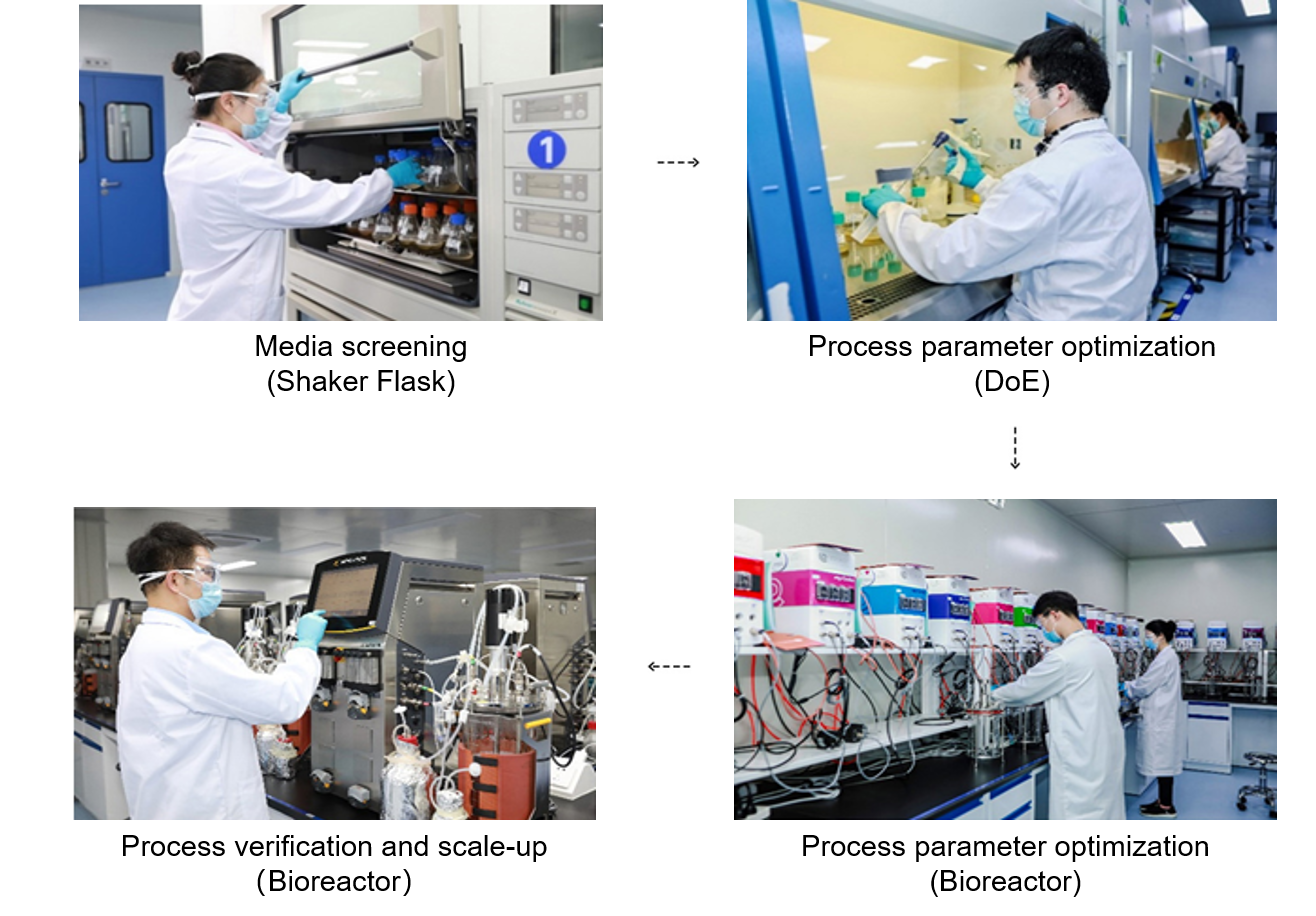

Zencore Biologics has established an exceptional upstream process development platform, which is well-equipped and operated by an experienced team. Our upstream PD platform specializes in developing stable, high-yield, robust, and transferable processes, representing one of Zencore’s core technological competencies.
Embracing an unwavering commitment to continuous innovation and improvement, we strive to explore and adopt cutting-edge technologies for cell culture processes. Our dedication lies in providing our customers with effective and robust solutions, ensuring the product quality, process efficiency, and reasonable COGS (Cost of Goods Sold). These key characteristics enable us to meet the diverse needs of global clients.
In 8-10 weeks, perform multiple rounds of process development from 250 mL shaker flask to 20 L bioreactor
Leveraging our thorough understanding of cell metabolism, bioreactor performance, protein quality attributes, and extensive cell culture development experience. We have built a superior upstream process development platform in the world.
Our cell culture platform, combined with proprietary media and high-quality CHO-K1 cell line, lets us to rapidly develop processes in 2 L, 5 L and 20 L bioreactors. The processes developed are robust and reproducible. So far, 100% of the projects have been successfully scaled-up to 200 L, 500 L or 2,000 L.
Our excellent scientists and technical experts have developed high-quality and efficient technology transfer processes, which will enable the accelerated timelines to IND.
Quality fusion protein highly similar with originator
A quality fusion protein highly similar to the originator was produced using a process developed in-house. This process was created through an integrated platform, combined with medium development/optimization and studies of critical process parameters in both upstream and downstream processes.
Science and risk-based, fully implementation of QbD
Zencore aims at perfecting the process development to provide our clients with the best services possible.
Any process is robust, reproducible, and scalable, ensuring the desired product quality and bioreactor throughput. Our skilled scientists leverage their expertise and cutting-edge cell culture instruments to develop high-quality, reliable processes.
Quality by Design (QbD) is fully integrated into our cell culture process development. Our scientists identify the best process solutions during product optimization, perform thorough risk assessments, and propose appropriate mitigation strategies. The team also focuses on identifying critical and key process parameters (CPPs and KPPs), optimizing media, defining control strategies, and verifying the process.
At the request of our customers, Zencore's development platform achieves specific quality attribute targets, such as matching charge variant profiles, reducing aggregates or fragments, and achieving desired glycosylation profiles. Additionally, we optimize upstream process parameters, including media selection, temperature, culture duration, and pH.
• Clone screening
• Media screening
• Critical process parameters identification
• Improvement of protein expression level
• Product quality improvement
• Perfusion process development
• Process technology transfer and scale-up

Issues: In a biosimilar mAb process development, compared with the glycosylation profile of the originator, it was found that the G0F component was higher and galactosylation content was lower in the molecule.
Strategy: Leveraged our thorough understanding of metabolic pathways in CHO cell, several engineering strategies were utilized to adjust the process parameters and proprietary medium components to achieve desirable glycosylation profile successfully.
Results: With the optimized process, project molecule has a highly similar glycosylation profile as well as other quality attributes to the originator molecule.
Issue: Fragments are always generated during the cellular synthesis, secretion and purification for bi-specific antibodies due to its complex molecular design and structure. Since the fragments will not be removed effectively during downstream purification process, it is necessary to strictly control the fragmentation during the cell culture stage.
Strategy: Reduce the molecular fragmentation by a combination of upstream process development and medium optimization.
Results: Fragmentation was reduced by nearly 50% with the optimized process, the target quality attributes were achieved, and the product titer increased.